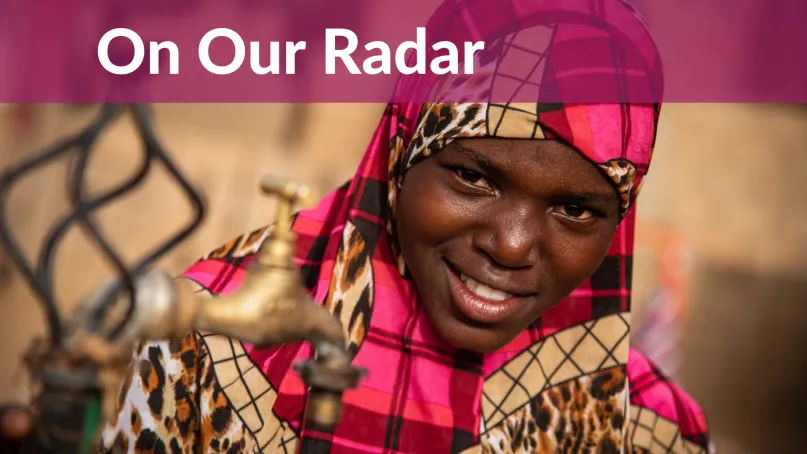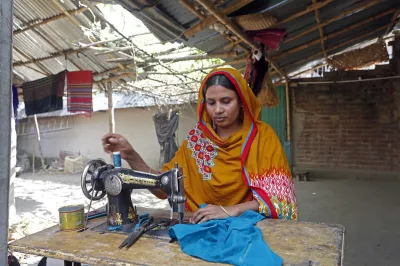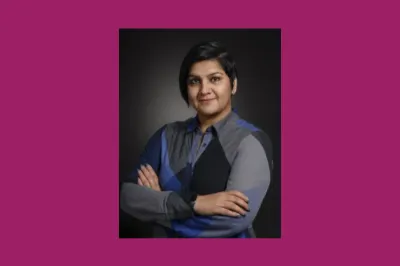On Our Radar: July 2024

An updated take on "What We're Reading". The FinEquity team brings you a curated list of women's financial inclusion and economic empowerment content we've been consuming recently, from podcasts, new initiatives, and articles to videos and social posts.
On Our Radar
Designing Credit Products to Support Women’s Economic Activity: Synthesis of Recent Literature
This evidence synthesis from Innovations for Poverty Action, examines a range of studies published to examine the impact of financial innovations that have addressed barriers women face in accessing and using credit for productive purposes. The authors examine studies that have looked at the impact of interventions that have reduced collateral requirements; refined targeting; addressed the “missing middle” with larger loans for women’s financial autonomy; leveraged digital and other tools for loan screening and delivery or innovated with loan repayment options.
Most of the included studies have been with samples of microentrepreneurs and either include an all-women sample or gender-disaggregated analysis.
When Looking at the Intersection of Climate and Gender Finance, What Do We See?
Women and girls are often more vulnerable to climate change, making it essential to integrate gender considerations into climate finance. Current reporting systems are, however, fragmented and inconsistent, complicating efforts to track and enhance gender equality through climate finance. Bilateral and multilateral funding bodies often lack standardized gender markers, making comprehensive tracking challenging. Improving coordination and reporting systems across different organizations could enhance transparency and effectiveness, ensuring that climate finance not only addresses climate goals but also promotes gender equality. This blog from ODI explores the complexities and potential solutions to this issue.
From Collateral to Cashflow: Expanding Access to Finance for Nigeria's Female Business Owners
Access to finance is a major problem for entrepreneurs in Nigeria. However, while women business leaders show significant interest in taking loans, they receive a smaller allocation of bank credit, which is often attributed to gender inequalities in ownership of assets for collateral. These two case studies from the The World Bank's Africa Gender Innovation Lab (GIL) and Finance, Competitiveness, and Innovation (FCI) Global Practice examine how two commercial banks supported by We-Fi and the Development Bank of Nigeria Plc are developing innovative credit solutions to expand access to finance for women entrepreneurs.
Bridging the Gender Digital Divide with Jamie Zimmerman
In this podcast episode of Building the Future, Romina Bandura, Senior Fellow at the CSIS Project on Prosperity and Development, is joined by Jamie Zimmerman, the Deputy Director of Digital Connectivity at the Bill and Melinda Gates Foundation, to discuss opportunities and challenges related to the gender divide in digital services in low- and middle-income countries, and the role various institutions can play in accelerating efforts to bridge this gap.
Insuring Women in Sri Lanka with AIA Insurance Lanka Limited
AIA Insurance Lanka Limited (AIA Sri Lanka) is a key player in Sri Lanka’s life insurance industry and a subsidiary of AIA Group. In 2022, with support from the International Finance Corporation, AIA Sri Lanka launched the ‘AYA Surakina AIA’ program, to support and empower women across the country through women-centric insurance products and services, financial literacy and skills-based training, and access to networks and information.
This case study explores how AIA Sri Lanka remained resilient and dedicated to becoming the preferred life insurer for women, at a time when addressing the gender protection gap was more needed than ever. It can serve as inspiration for insurers in other emerging markets that seek brand positioning in the women’s insurance market, revenue diversification, and ultimately top-and bottom-line growth.
Diagnostic of Gender and Age Norms in Financial Inclusion - A Pilot Study in Five Districts of Malawi
This latest report from FAO investigates how social norms impact rural women’s and youth’s ability to access and use formal financial products and services in Malawi. It confirms the importance of considering social norms when designing interventions to improve women’s and youth’s economic empowerment, and offers concrete recommendations for the development of such interventions and programming.
The report is intended for development actors, United Nations agencies and non-governmental organizations, including the United Nations Rome-based Agencies, as well as financial service providers and policy makers in Malawi.


